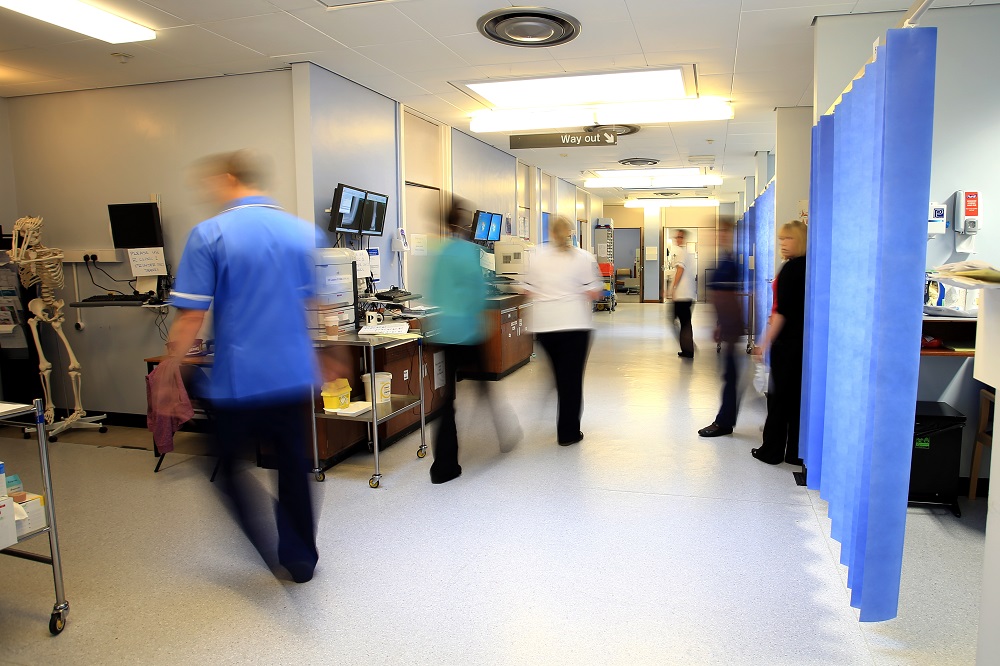Nurses’ blame UK Health Secretary’s ‘belligerence’ for sinking talks to avert strike action

Talks to avert the nursing strike have failed after the nurses leaders accused the UK Health Secretary Steve Barclay of “belligerence” and refusing to discuss pay.
Royal College of Nursing (RCN) general secretary Pat Cullen said nurses were “not getting an extra penny” despite her attending talks on Monday, three days before their first strike date.
Meanwhile, Cabinet minister Oliver Dowden warned the Government “cannot eliminate” the risks of a wave of strike action this month after chairing an emergency Cobra meeting.
He said ministers will be “straining every sinew” to minimise the disruption, with paramedics, train staff and border officials among those scheduled to walk out.
The first UK-wide strike in the RCN’s history looks set to begin on Thursday – with a second date set for Tuesday – despite the talks between Mr Barclay and Ms Cullen.
“The Government was true to its word – they would not talk to me about pay,” the RCN boss said in a statement.
“I needed to come out of this meeting with something serious to show nurses why they should not strike this week. Regrettably, they are not getting an extra penny.
“Ministers had too little to say and I had to speak at length about the unprecedented strength of feeling in the profession.
“I expressed my deep disappointment at the belligerence – they have closed their books and walked away.”
The union is demanding a pay rise of 5% above the RPI rate of inflation, which was 14.2% in October, but Ms Cullen has hinted that she could compromise if the Government negotiates on pay.
Mr Barclay has been sticking with the independent pay review body’s recommendation of a £1,400 raise.
Under pressure
He was under increasing pressure to settle a deal after strikes by ambulance staff and some NHS workers in Scotland were called off after members of two unions voted to accept the Scottish Government’s recent pay deal.
Unite and Unison members called off action after negotiations with Health Secretary Humza Yousaf and the intervention of First Minister Nicola Sturgeon.
The new deal would mean NHS workers in Scotland would remain the best-paid in the UK and workers would get pay rises ranging from £2,205 to £2,751.
For the lowest paid it would be a rise of 11.3%, with an average rise of 7.5%.
A Department of Health and Social Care spokesman said Mr Barclay “again listened to the RCN’s position on pay and reiterated the Government has agreed to the recommendations of the independent pay review body”.
“He said that any further pay increase would mean taking money away from frontline services and reducing the 7.2 million elective backlog,” the official added.
“Mr Barclay said he would continue to engage with the RCN as we move into the pay review process for next year and on non-pay related issues.”
Meanwhile, Mr Dowden, Chancellor of the Duchy of Lancaster, chaired the meeting of the Government’s emergency response committee, with military figures in attendance.
Troops
He reiterated pleas for workers to call off action to “give families a break” but admitted contingency plans to use troops to help fill the gaps will not be enough to “remove all risks”.
“Of course, this Government will be straining every sinew to make sure that we minimise those risks, but we cannot eliminate them,” he told broadcasters.
“The fair and reasonable thing for the unions to do particularly in a time when winter is biting, we’re suffering from the consequences of Ukraine and indeed the Covid situation, to call off those strikes, give families a break, particularly over winter time.”
Mr Dowden added: “My message to them, even now, is please call them off.”
Meanwhile, UK health minister Will Quince admitted that taxis could be used to transport patients during ambulance strikes on December 21 and 28.
He told MPs it is “likely” that category one and two calls “where there is an immediate threat to life will be responded to”.
Bur he added: “We are looking at ways in which we can provide additional support for category three and category four, including things such as block-booking taxis and support through community healthcare, local authority fall services and community support.”
A wave of strikes by nurses, paramedics, rail workers and Border Force staff this month is expected to cause mass disruption, with thousands of NHS operations and appointments cancelled.
The military and civil servants are likely to be brought in to cover Border Force staff while armed forces will also be deployed to hospital trusts ahead of the ambulance worker strike.
Labour leader Sir Keir Starmer accused the Government of a “colossal failure of leadership”.
He told ITV’s Peston: “I think many people watching this would be astonished – they think it’s bizarre – that between now and Wednesday we have an opportunity for the Government to prevent the strike on Thursday.
“All they’ve got to do is open the door and go and walk in and get around the table and talk about the issues that are … of course pay. But for the Government to say, ‘There is going to be a strike on Thursday, we’re not even prepared to talk between now and Wednesday to avert that strike’. It’s a colossal failure of leadership.”
Support our Nation today
For the price of a cup of coffee a month you can help us create an independent, not-for-profit, national news service for the people of Wales, by the people of Wales.





It looks like the government is ignoring the unions and just looking at damage limitation, hoping the public will back them and turn against the unions. It isn’t going to work. They need to come to some sort of agreement – whether they like it or not.